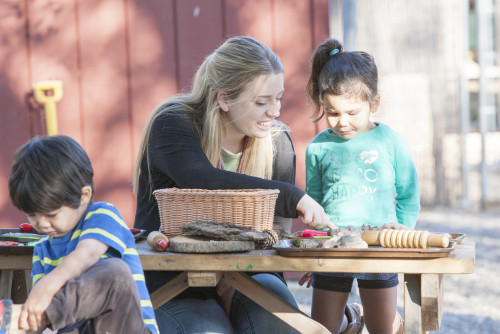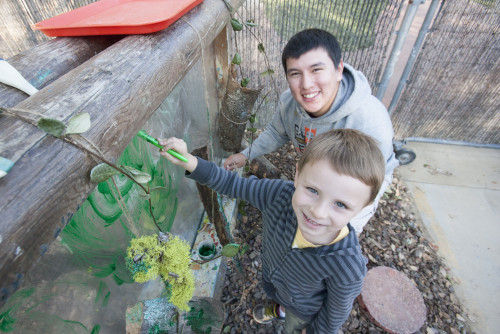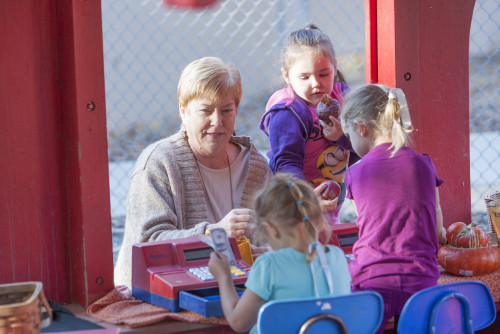Early Childhood Education Certificate
Certificate | SC Program: CT.3451
The Early Childhood Education Certificate will offer students initial training to work with young children. After completion of the 24-unit certificate requirements, the student will qualify for employment as an entry-level teacher in private child care settings licensed through the Department of Social Services. The Early Childhood Education Certificate course work also meets the training requirements for the Child Development Associate Teacher Permit issued by the California Commission on Teacher Credentialing. All certificate requirements must be completed with a “C” grade or better.
This 24 unit certificate is intended to fulfill the ECE requirement of a lower-division program of study that can transfer to the CSU system. With additional coursework, both at lower-division and upper-division levels, it prepares the student for in-depth coursework toward higher degree attainment. When the 24-unit certificate is combined with 16 General Education units, it qualifies the student for a Child Development Permit issued by the Office of Teacher Credentialing, at the Teacher level.
This certificate is approved through the California Community College Chancellor’s Office. Upon satisfactory completion of the listed requirements and filing an application for graduation with Admissions and Records, the student’s transcript will reflect completion of this certificate.



Choose your path
Map your education by viewing the program map for the degree or certificate you’re interested in earning below. Meet with a counselor to create your official comprehensive education plan.
A program map shows all the required and recommended courses you need to graduate and a suggested order in which you should take them. The suggested sequence of courses is based on enrollment and includes all major and general education courses required for the degree.
Fall Semester, First Year
12 Units TotalSpring Semester, First Year
6 Units TotalFall Semester, Second Year
6 Units TotalThis capstone course focuses on identifying, developing, and refining skills and behaviors essential for effective teaching of young children, consistent with national standards. The course is intended for students who want or need a supervised field experience where they have the opportunity to work directly with children to integrate theory and practice. Students will have the opportunity to practice and demonstrate skills that focus on child-centered, play-based approaches to teaching by designing, implementing, and evaluating developmentally appropriate activities, as well as gaining practical knowledge of learning and assessment. Knowledge of curriculum design will be emphasized as students plan, prepare, present, and evaluate experiences that promote positive development. The lecture component of this course may be offered in a distance education format. This course includes 54 hours of participation with young children in the Shasta College ECE Center Lab School or in a certified early childhood Mentor classroom.
Please see a counselor to discuss options for meeting general education requirements for transfer to California State Universities (CSU) and/or University of California (UC) campuses, as well as any specific additional courses that may be required by your chosen institution of transfer.
*Alternative Courses: Please see a Shasta College counselor for alternative course options. You can also view the following to find other courses to meet degree/certificate requirements:
- California State Universities – General Education
- IGETC – Intersegmental General Education Transfer Curriculum
Contact Us for More Information
Counseling & Student Services
Contact InfoAcademic/Instructional Division Office
Start Your Future at Shasta College
We are dedicated to helping you reach your educational and career goals. To begin your journey, apply for admissions today!
